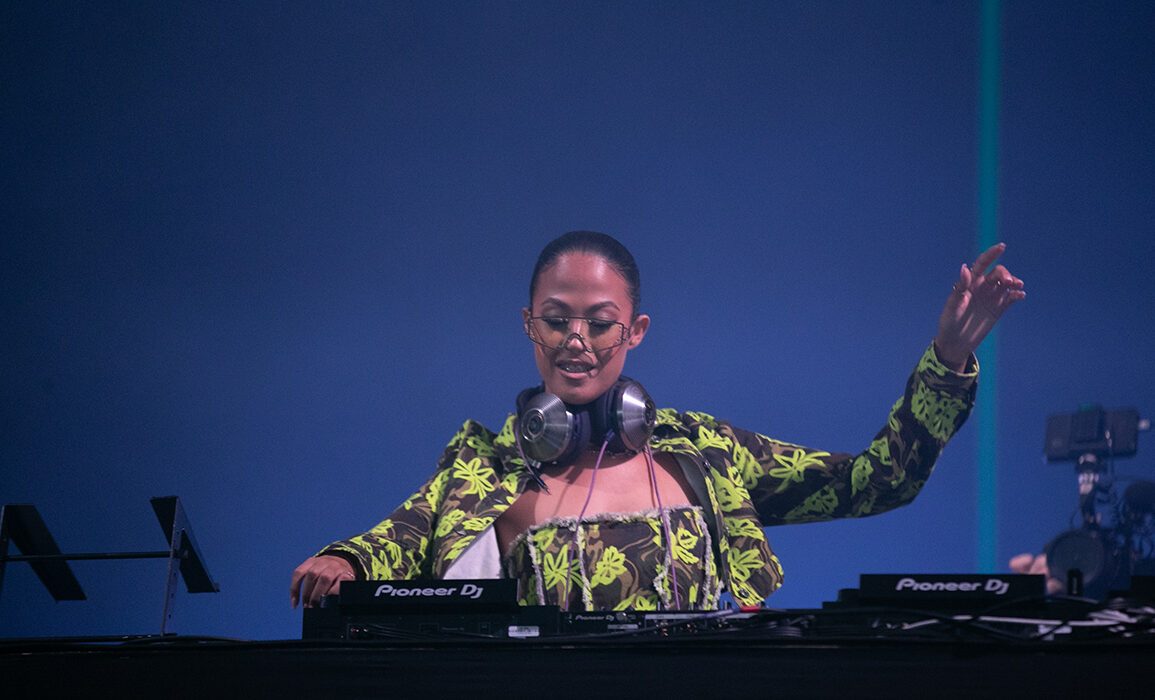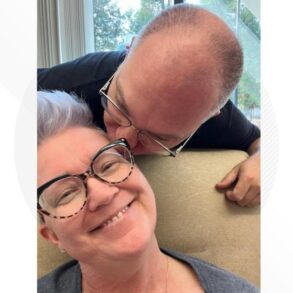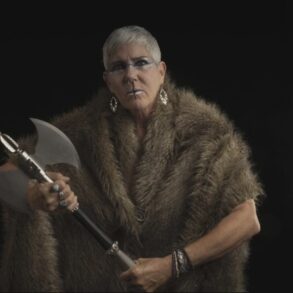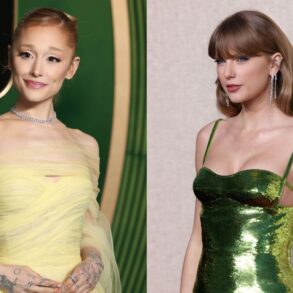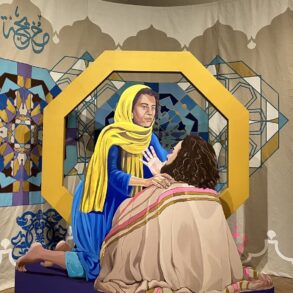Behind the staggering numbers is the story of a young woman from Dublin who is taking on the world.
Jazzy has been on a startling climb to stardom for three years, and this week brought another glittering milestone when she became the most popular female Irish artist on Spotify with 7.3 million monthly listeners.
Her huge listenership places her fifth on the list of Irish solo artists, behind Hozier, Van Morrison, Niall Horan and Dermot Kennedy.
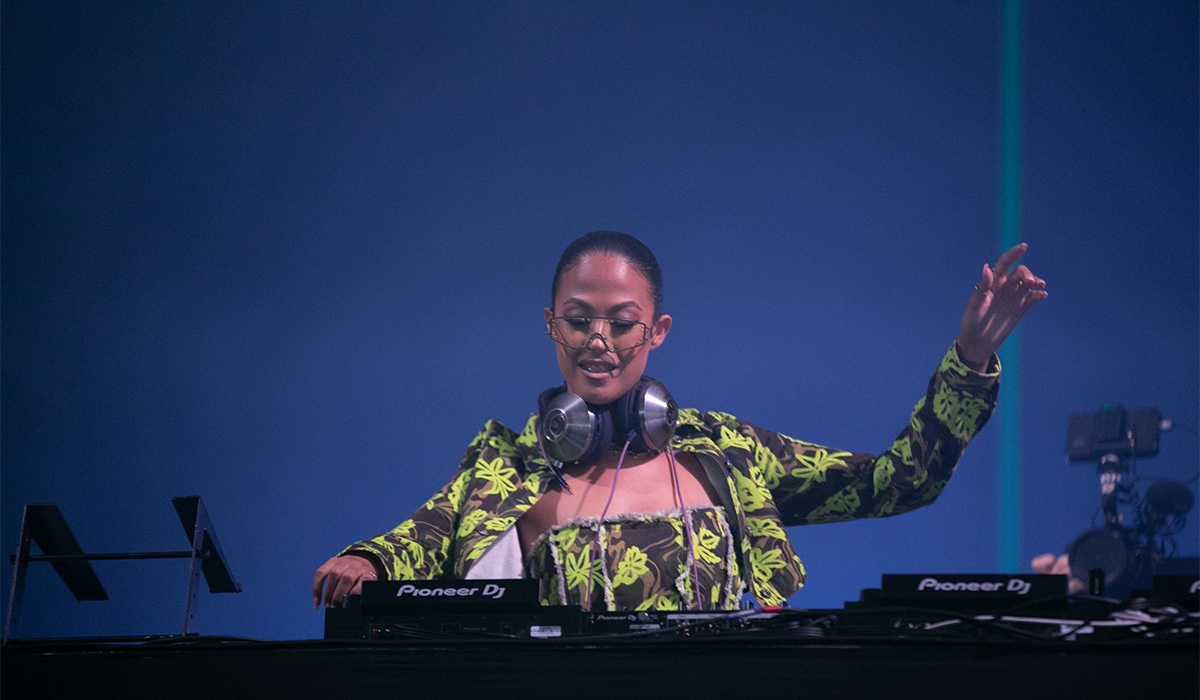
Further success looks a certainty for Crumlin native Jazzy and with it growing fame and fortune.
Her latest single No Bad Vibes is destined to be as successful as her previous No1s, as she breaks barriers for young Irish women and mixed race artists here and further afield.
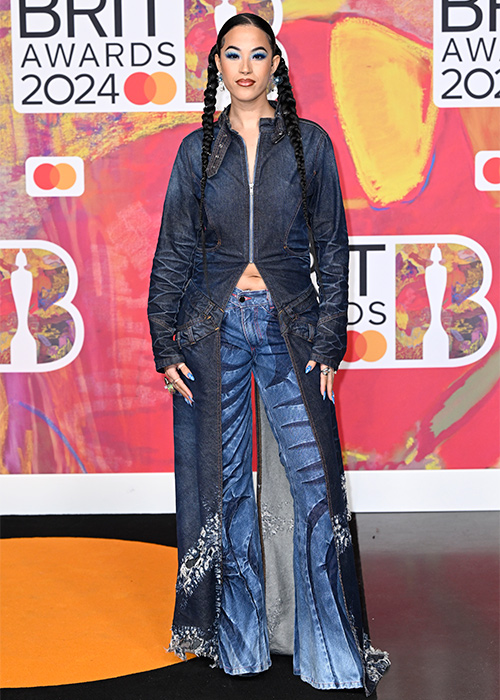
So just who is this chart phenomenon? Jazzy was born Yasmine Byrne in September 1996, and raised by her mother in a council estate in Crumlin, along with two siblings.
‘My mam had the three of us on her own, me, my brother, and my sister,’ she told an interviewer last year. ‘We didn’t want for anything. Everyone looked out for one another on the road. There’s ruffians everywhere you go, but for the most part, it was all good.’
She has Jamaican heritage on her father’s side, but her mother raised the children on her own. Speaking about growing up mixed race, Jazzy said: ‘There were times when I was the only person of colour in the room. ‘My da’s not in the picture and that’s fine, but I always acknowledge the fact that I am mixed and I’m proud to be mixed.’
St Agnes National School in Crumlin, where Jazzy was educated, ran a programme that gave every pupil the chance to learn a musical instrument, the sort of innocuous-seeming, well-intended initiative that barely registers for most – but that has the power to change a life.
‘I feel like if I hadn’t got that opportunity, maybe I wouldn’t be doing music today,’ she said a year ago.
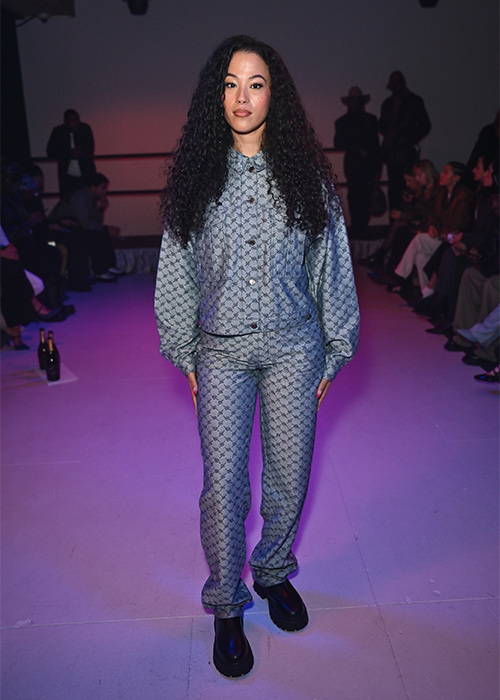
Through secondary school she completed her violin grades and played in the school orchestra, but ended up falling hard for R&B in particular.
Lauryn Hill was a formative influence when she discovered her it as a teenager. The reggae played at home introduced her to the music of Bob Marley, UB40 and John Holt. It wasn’t until her late teens that Jazzy attended her first big gig, Nicki Minaj at Dublin’s 3Arena.
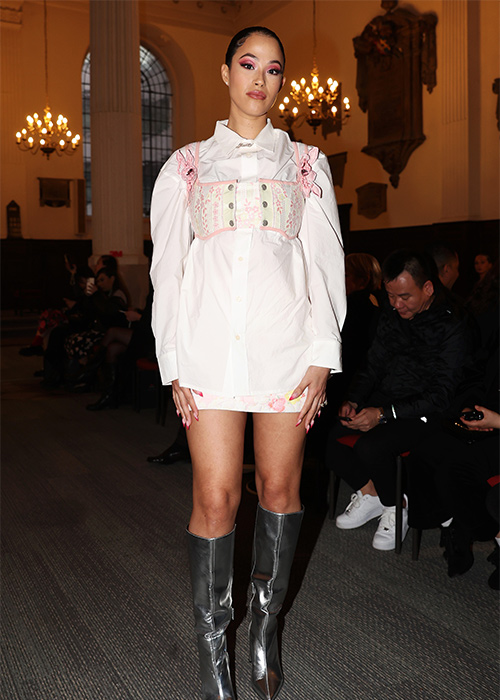
‘I was a very good child, so I never went out, or went into a nightclub, before the age of 18,’ she told Hot Press. ‘So when I turned 18, my friend brought me out to my first nightclub, to see a DJ duo called Amine Edge & Dance, and I just had the best time.
‘After that night, I went straight on to YouTube, Spotify and SoundCloud, trying to find other songs I liked, that I’d listened to that night. I just fell in love with it, and it all stemmed from that first night out.’
Last year, she played that same iconic venue as a special guest of Belters Only. Her relationship with that collective was critical in accelerating her journey from music devotee to bona fide musician in her own right.
First, she had a livelihood to worry about, and worked in Dunnes Stores after leaving school, before moving on to Tesco. She was growing deeper into music, and a friend of hers knew a DJ.
‘A friend of a friend was DJing in Dublin and I wanted to learn so I just texted him and asked, “Any chance of some lessons?”,’ she recalled in an interview last summer.’ That was five years ago and he’s actually my boyfriend now.’
That DJ, Ross Mooney, went on to become her fiancé, getting engaged in December 2023.
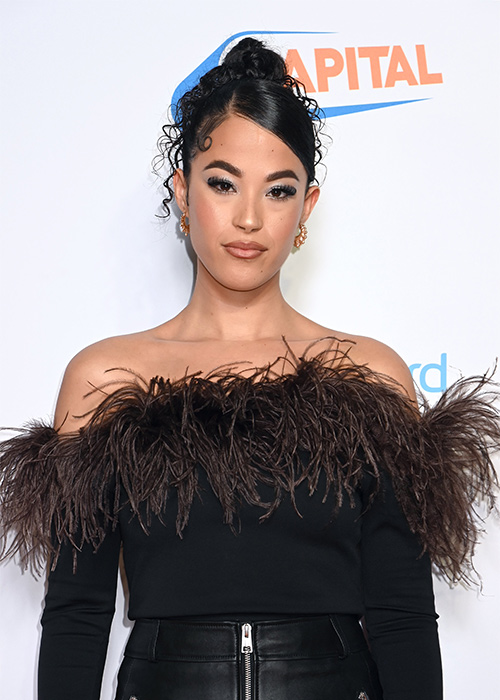
Capital’s Jingle Bell Ball with Barclaycard. Pic: REX
Through Mooney came her collaboration with Belters Only. Make Me Feel Good was the product of that, a top-10 hit in the UK and No1 here.
It transformed the lives of all involved – and it left Jazzy facing a crossroads.
‘I was still in Tesco when I heard Make Me Feel Good went to No1,’ she later said. ‘I was making my croissants and I got a phone call. That was one of the bigger milestones for me.
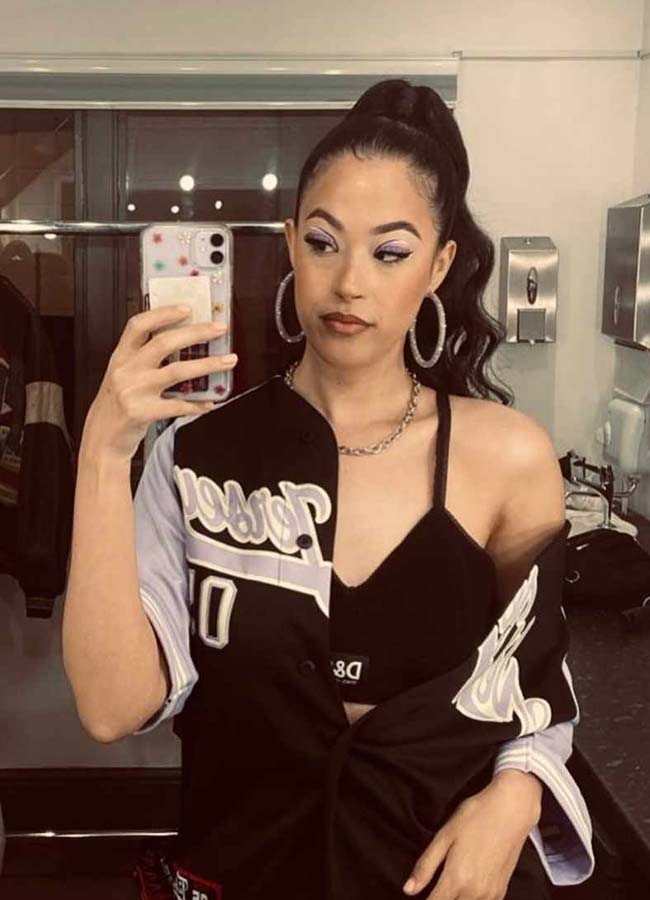
‘Getting to leave my job when I got signed to the label was a big one as well, and kind of scary at the same time – because I didn’t know what was going to happen.’
‘I stayed for a little while,’ she said of combining her stardom with working on the bakery counter. ‘I think I was probably with the label for about three or four months when I felt like it was okay; it was probably time to leave Tesco. I just wanted to have that security behind me.’
She was close to her manager, who promised her a job if she ever needed one in the future. That shouldn’t be an issue.
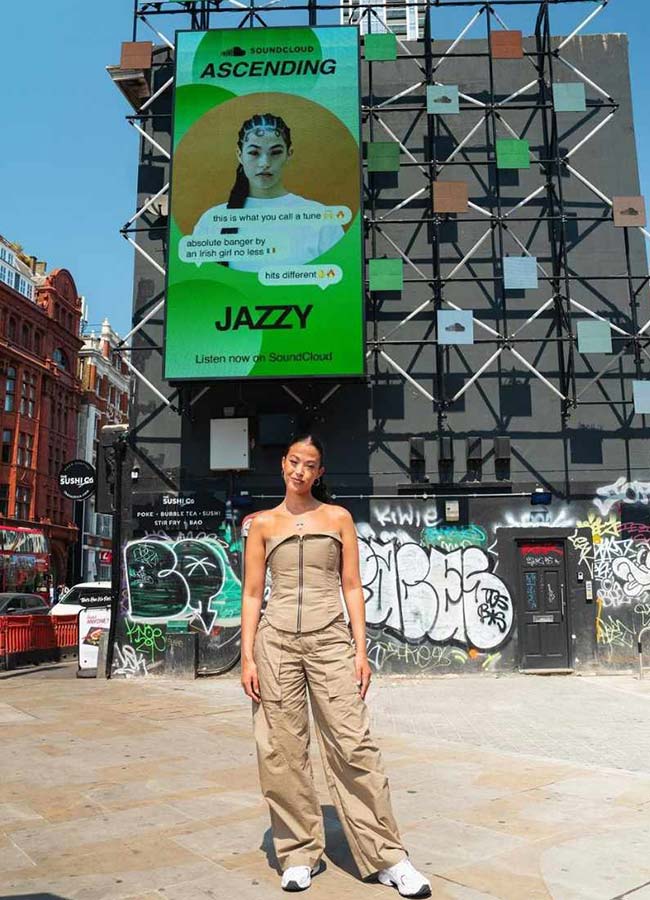
A delegation from music giant Polydor arrived in Dublin to meet her. They repaired to a pub, and one of the visiting suits later recalled the end of the conversation.
The splendidly named Jack Duckworth was part of the group eager to sign her up – much to her astonishment.
‘At the end of the meeting, I mentioned we wanted to sign her which was received with a, “Oh p*** off, you’re joking”,’ he recalled last year.
Her single Giving Me came out in March last year and was another Irish No1. More records tumbled as a result.
She was the first Irishwoman to top the charts here as a solo artist in 14 years. t also made the top three in the UK. She was also the first black Irish artist to top the charts since Samantha Mumba 23 years ago.
To date, Giving Me has been streamed over 151 million times. It was the most viewed song on YouTube in Ireland last year, according to Polydor.
The follow up, Feel It, reached 22 in the Irish charts and made the top 40 in the UK, and then last October came the EP Constellations.
By then, she was a sensation – and attracted the publicity associated with that level of success. That included being named earlier this year on a Forbes list of the 30 under 30 European entertainment talents.
Her label enthuses about how she has ‘smashed it on social’ – as well as her musical talent, Jazzy is a social media star.
‘It’s the perfect mix of social content that has set Jazzy apart,’ said another Polydor executive, ‘from organic clips of Jazzy singing and using trending TikTok sounds, to the elevated shortform vignettes soundtracked by her own music, which have consistently gone viral.’
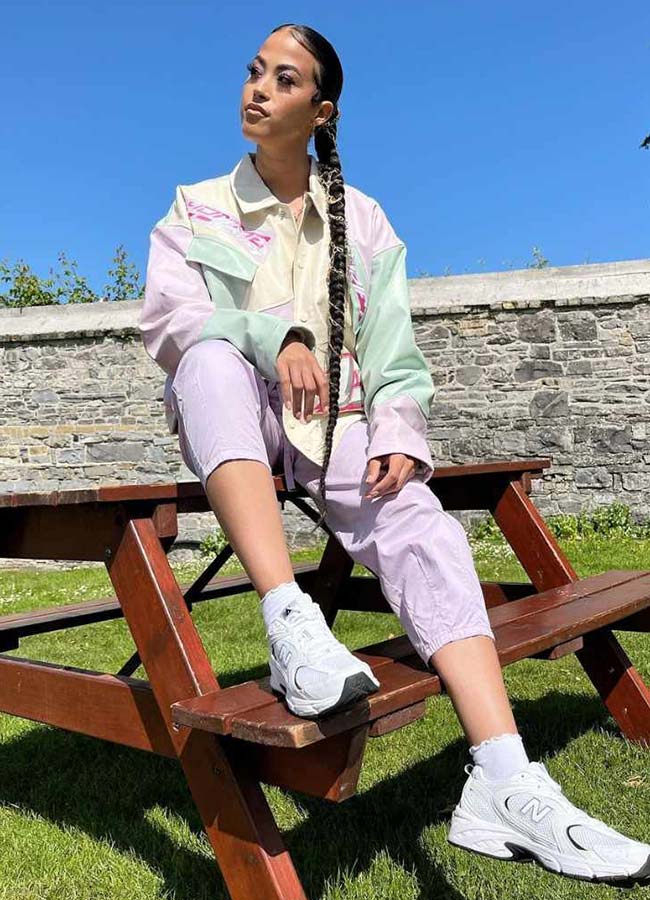
In using social media to promote her music, she isn’t unique – modern musical success, whatever the genre, is about the nuts and bolts of creating material, but also about getting that music to as wide an audience as possible.
This is where the industry today is so radically different from the traditional model, where artists could rely on selling singles and albums through a local record shop after an audience heard them on the radio.
Sales are still vital, but artists and songs are now more likely to get known through social media. Becoming a viral hit is the aim.
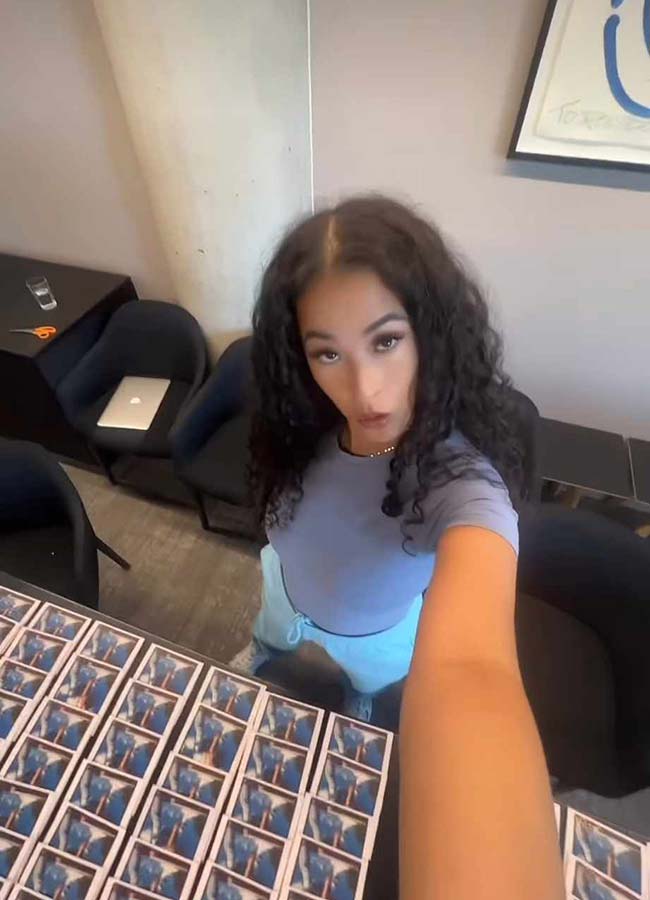
Jazzy has done that and is also a conventional star thanks to her gigs. Her set at Electric Picnic during the summer received uniformly glowing reviews, and she plays in Dublin, at the Index venue, on November 9.
‘My way of dealing with it now is to not even really think about it,’ she told Hot Press when speaking about her profile now, ‘or even let myself process it, because it can be scary when you think about it. So I try to just play it down.’
She organised a charity show in the 3Olympia Theatre in April to raise funds for Children’s Health Ireland, and as well as illustrating her decency, it also suggested that she appreciates not only her standing now, but the power of that, and how it can be wielded.
Jazzy’s phenomenal rise has a further context: one report claimed that between June 2023 and June 2024, just two Irish women featured in the 100 most played songs on radio: Jazzy and Dolores O’Riordan.
There is only so much any artist can do to address a startling statistic like that, but she is acutely aware of how important influences are on a young artist.
‘I’d like to hope that someone will come after me who will want to be like Jazzy. That’s a nice thought,’ she has said.
Her adroit handling of fame so far speaks to an enormous talent but also a tuned-in individual. Her story follows the classic contours of the ordinary singer in an ordinary job, who in a short space of time is catapulted into another world.
As she has said herself, ‘It would be easy to freak out. I literally went from working in a bakery in Tesco to a No1 song’.
But she hasn’t done that. Instead, she has gone from strength to strength, a vivid talent breaking new ground. Her story is barely told.




